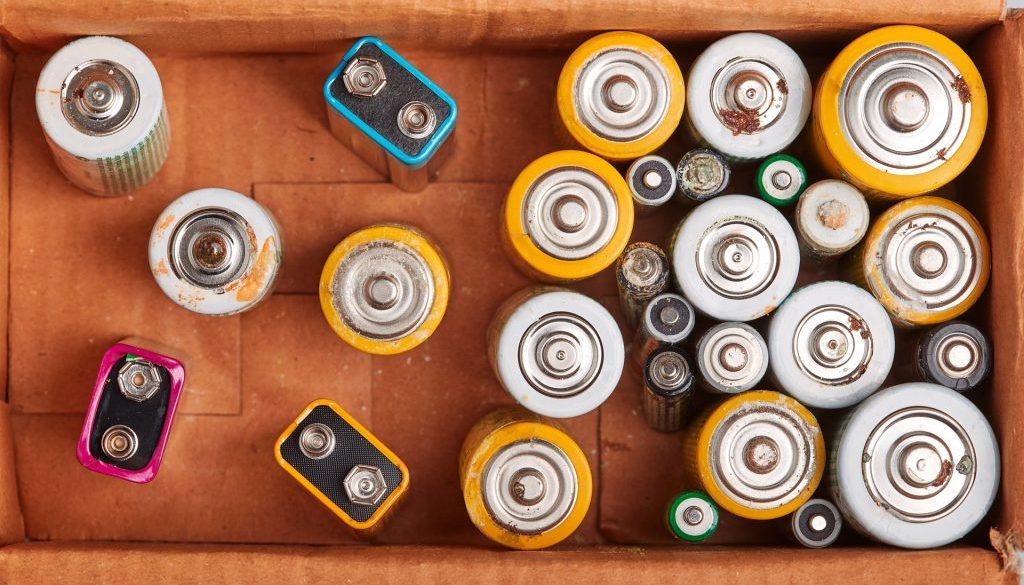In today’s technologically driven world, batteries are an essential component in powering a wide variety of electronic devices, from smartphones and laptops to children’s toys and home appliances. With the increasing rate of battery consumption, the proper disposal of used batteries is more important than ever. When batteries end up in landfills, harmful contaminants can leach into the soil and groundwater, posing significant risks to the environment and public health.
In this comprehensive guide, we will dive into the essentials of responsible battery disposal, focusing on the health and environmental dangers associated with improper disposal, the different types of batteries commonly found in households, and practical tips for recycling or disposing of batteries safely and responsibly. Our goal is to empower homeowners and businesses alike with the knowledge needed to manage the risks associated with battery waste and reduce their ecological footprint.
As a family-run skip hire and aggregate company servicing Staffordshire, we pride ourselves on promoting sustainable, eco-friendly waste management practices. In this guide, we will share our expertise in battery disposal, aiming to raise awareness about the importance of responsible recycling and disposal to protect our environment and public health.
In the following sections, we will cover several key aspects of battery disposal, including the environmental and health risks linked to improper disposal, identification of common battery types, and tips for safely recycling and disposing of used batteries.
The Dangers of Improper Battery Disposal
Improper battery disposal can have serious consequences for the environment and human health:
- Environmental Risks: Batteries contain harmful chemicals such as cadmium, lead, mercury, and lithium which, when improperly disposed of, can leak into the soil and groundwater. These contaminants can cause widespread environmental damage and disrupt ecosystems, affecting both plant and animal life.
- Health Risks: Exposure to hazardous substances in battery waste jeopardises both human health and wildlife. Ingestion or inhalation of these toxic chemicals can lead to serious health complications, including lung and kidney damage, developmental disorders, and even cancer.
Common Types of Household Batteries
Understanding the most common types of batteries used in households is crucial for proper disposal:
- Alkaline Batteries: Most commonly found in remote controls, torches, and children’s toys, these single-use batteries are relatively safe and can typically be disposed of in your household waste, unless local regulations specify otherwise.
- Lithium-ion (Li-ion) Batteries: Used in smartphones, laptops, and other rechargeable devices, Li-ion batteries pose a significant fire risk if punctured or damaged. It is crucial to recycle these batteries to reduce the risk of fire and environmental contamination.
- Button Cell Batteries: Small, coin-shaped batteries commonly found in hearing aids, watches, and certain medical devices, button cell batteries often contain mercury and should be disposed of as hazardous waste.
- Lead-acid Batteries: Used in vehicles, forklifts, and emergency lighting systems, these batteries contain significant amounts of lead and sulfuric acid, making them highly toxic and environmentally damaging. They must be recycled according to regulations.
Practical Tips for Safely Recycling and Disposing of Batteries
When disposing of used batteries, employing the following tips will help mitigate environmental and health risks:
- Determine Local Regulations: Since battery disposal regulations differ depending on the region, it is essential to familiarise yourself with local guidelines on battery waste management.
- Keep Batteries Intact: Do not attempt to dismantle batteries, as this exposes the hazardous components and increases the risk of personal injury and environmental contamination.
- Store Batteries Safely: When collecting used batteries for disposal, store them in a cool, dry place away from direct sunlight or heat, and separate them from other waste to prevent potential chemical reactions.
- Utilise Designated Recycling Facilities: Many communities and businesses offer dedicated battery recycling points that accept both rechargeable and single-use batteries. Ensure you deposit used batteries at these designated locations instead of landfill-bound bins.
The Role of Businesses and Manufacturers in Battery Disposal
Aside from individual actions, businesses and manufacturers also play a crucial role in promoting responsible battery disposal:
- Extended Producer Responsibility (EPR) Schemes: Globally, various EPR schemes require manufacturers to finance the collection, recycling, and appropriate disposal of batteries to help mitigate environmental risks.
- Battery Recycling Programmes: Companies that manufacture or sell batteries can develop or participate in recycling initiatives, providing consumers with easy access to battery recycling facilities.
- Community Awareness and Education: Retailers and local councils can collaborate to raise awareness about proper battery disposal and provide information about recycling points and appropriate disposal methods.
Conclusion
Proper battery disposal is a crucial aspect of responsible waste management, with significant implications for both the environment and public health. By understanding the dangers associated with improper disposal, identifying the battery types used in households, and following local guidelines on safe recycling and disposal methods, individuals, businesses, and manufacturers can all contribute to preserving our environment and protecting public health from hazards associated with battery waste.
As a family-run skip hire and aggregate company servicing Staffordshire, Enviro Skip Hire is committed to promoting environmentally friendly waste management practices in our community. If you require further guidance or assistance with hazardous waste disposal, including battery recycling, do not hesitate to reach out to us. Together, we can help safeguard the environment and public health through responsible waste management practices. Hire a skip in Stafford today!




